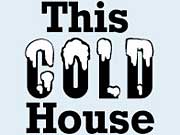 |
| Deidre Jackson, left, says she's considering dropping out of school to take a second job just to pay her heating costs. Lucille Olson, right, a 75-year-old widow from St. Paul, said things are so bad financially, she's taking out a reverse mortgage. (MPR Photo/Toni Randolph) |
St. Paul, Minn. — Coleman opened the hearing with a statement noting the spike in natural gas prices over the last few months. State officials say average heating bills in Minnesota for January are expected to be 37 percent higher than last year. Coleman said he wanted to know how those changes were affecting household budgets. He heard from a 75-year-old widow who spends about one third of her income on heat alone. She said things are so bad financially, she's taking out a reverse mortgage that will bring in extra income so she can pay for her medications, other bills, food and heat.
Coleman also heard from Deidre Jackson, a single mother of three who works full-time with the Minnesota Department of Human Services, who also attends college. Jackson testified that she's replaced windows and weather stripping, and added insulation to her St. Paul home, but that hasn't been enough.
"Even with the improvements to my home's insulation, my heating bill keeps going up," she said. "In December 2004, my heating bill was $309. This December it was $649. My bill has increased over 100 percent despite the energy-efficient improvements I've made to my home."
Jackson says she's considering dropping out of school to take a second job just to pay her heating costs. She received financial assistance from the Low Income Home Energy Assistance Program -- or LIHEAP -- but the increase in her heating bill more than used up her grant.
The LIHEAP program provides grants to low-income families in Minnesota to help them pay their heating bills. Families qualify if they make less than 50 percent of the median income in their county. In Ramsey and Washington counties, that's a household income of about $38,000 for a family of four.
Cathryn Fair, an energy assistance coordinator with Community Action Partnership, which serves the two Twin Cities counties, says her agency is seeing a dramatic jump in requests for financial assistance because of high gas prices. "We were at the same point at the end of November this year that we were at at the end of January last year as far as the number of applications. We had about 50 percent more grants already out. We've had 20 percent more people who we've helped avert disconnections," according to Fair.
In Minnesota the "cold-weather rule" prevents utilities from shutting off service between October 15 and April 15. But Fair says some people needed that protection even before the rule went into effect, and she's not sure what will happen when it expires, since cold weather in Minnesota generally goes beyond April. Fair says she's hoping Congress will pass a supplemental budget bill that includes $1 billion in funding for LIHEAP.
Sen. Coleman says he has been working to get that bill passed. He says some of his fellow senators from warm-weather states don't necessarily understand how crucial this bill is to states like Minnesota.
"I want to be able to get back to my colleagues and say, 'this is a real issue. I've heard from average Minnesotans who are still being impacted.' I worry that the warm January somehow diminished some of the resolve people have for providing the necessary LIHEAP funding. I want to make sure we that keep this issue on the hot burner," Coleman said.
If the bill passes, Minnesota could get an additional $30 million to help families with heating costs.




